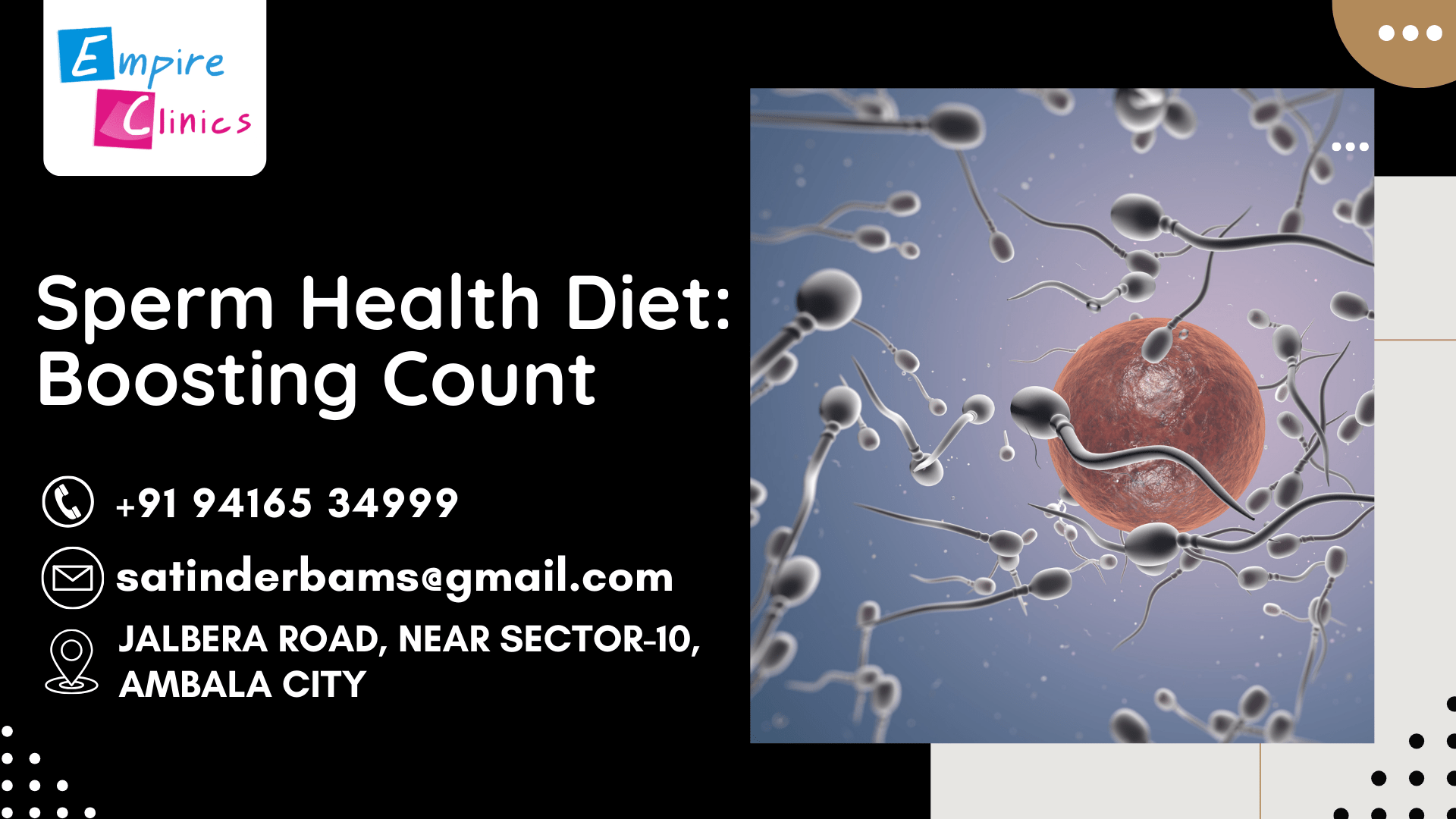Improving sperm health and fertility is a significant concern for many men aiming to enhance their chances of conception. While several factors influence sperm quality, a balanced diet rich in specific nutrients and healthy lifestyle choices can play a crucial role. Here’s a comprehensive guide to boosting sperm count and overall male fertility naturally.
Table of Contents
Understanding Sperm Health
Key aspects of sperm health include:
- Sperm Count: The number of sperm in a semen sample.
- Sperm Motility: The ability of sperm to move effectively.
- Sperm Morphology: The size and shape of sperm, crucial for fertilizing an egg.
Various factors, including lifestyle choices and nutritional deficiencies, can impact these aspects. Fortunately, a diet rich in certain nutrients can help enhance sperm health.
Nutrients and Foods for Sperm Health
1. Zinc
Role: Zinc is vital for testosterone production and sperm development. It supports DNA synthesis and cell division.
Sources:
- Oysters: An excellent source of zinc.
- Pumpkin Seeds: A plant-based source.
- Nuts and Beans: Almonds, cashews, and lentils also provide zinc.
Recommendation: Incorporate these foods into your diet to meet your daily zinc needs.
2. Folate (Vitamin B9)
Role: Folate is crucial for DNA synthesis and repair, aiding healthy sperm formation.
Sources:
- Leafy Greens: Spinach and kale are rich in folate.
- Citrus Fruits: Oranges and lemons are excellent sources.
- Legumes: Beans and lentils provide folate.
Recommendation: Include these foods regularly to ensure adequate folate intake.
3. Antioxidants
Role: Antioxidants protect sperm from oxidative stress, reducing damage and improving quality.
Sources:
- Vitamin C: Found in berries (strawberries, blueberries) and bell peppers.
- Vitamin E: Present in nuts and green leafy vegetables.
- Beta-Carotene: Available in carrots and sweet potatoes.
Recommendation: Consume a variety of antioxidant-rich foods daily.
4. Omega-3 Fatty Acids
Role: Omega-3 fatty acids enhance sperm motility and overall health.
Sources:
- Fatty Fish: Salmon and mackerel are rich in omega-3s.
- Flaxseeds and Chia Seeds: Provide plant-based omega-3s.
- Walnuts: Another good source.
Recommendation: Include omega-3-rich foods in your diet at least twice a week.
5. Lycopene
Role: Lycopene is a powerful antioxidant that improves sperm quality and reduces abnormalities.
Sources:
- Tomatoes: Particularly effective when cooked.
- Watermelon: High in lycopene.
- Pink Grapefruit and Papaya: Also good sources.
Recommendation: Add lycopene-rich foods to your diet regularly.
6. Coenzyme Q10
Role: Coenzyme Q10 improves sperm motility and protects sperm cells.
Sources:
- Fish: Mackerel and sardines are high in coenzyme Q10.
- Organ Meats: Liver is a good source.
- Whole Grains: Brown rice and oats contain coenzyme Q10.
Recommendation: Incorporate these foods into your diet for adequate coenzyme Q10 levels.
7. Vitamin D
Role: Vitamin D is associated with better sperm motility and hormone levels.
Sources:
- Sun Exposure: The most natural source of vitamin D.
- Fatty Fish: Salmon and mackerel are rich in vitamin D.
- Fortified Foods: Milk and orange juice often have added vitamin D.
Recommendation: Combine sun exposure with dietary sources to meet your vitamin D needs.
8. Garlic
Role: Garlic contains allicin and selenium, which support healthy sperm production and motility.
Sources:
- Garlic Cloves: Use fresh garlic in your meals.
Recommendation: Incorporate garlic into your diet for its fertility-boosting properties.
9. Dark Chocolate
Role: Dark chocolate is rich in L-arginine, an amino acid that boosts sperm count and motility.
Sources:
- Dark Chocolate: Opt for high cocoa content varieties.
Recommendation: Enjoy dark chocolate in moderation as part of a balanced diet.
Lifestyle Tips for Enhanced Fertility
- Stay Hydrated: Drink plenty of water to support overall health and sperm quality.
- Exercise Regularly: Moderate exercise improves testosterone levels and overall well-being. Aim for activities like brisk walking or cycling.
- Avoid Excess Alcohol and Smoking: Both can negatively impact sperm count and quality. Limiting or avoiding these substances supports better fertility.
- Maintain a Healthy Weight: Obesity can disrupt hormonal balance and affect sperm production. Achieve and maintain a healthy weight through diet and exercise.
- Reduce Stress: Chronic stress can impact hormone levels and sperm quality. Incorporate stress-reducing activities such as meditation, yoga, or hobbies.
Have any Question in Sperm Health, Contact Now
Boosting sperm health naturally involves a combination of nutrient-rich foods and healthy lifestyle practices. By focusing on these dietary and lifestyle adjustments, you can improve your sperm count and fertility. For ongoing concerns, consult with a healthcare professional for personalized guidance.







